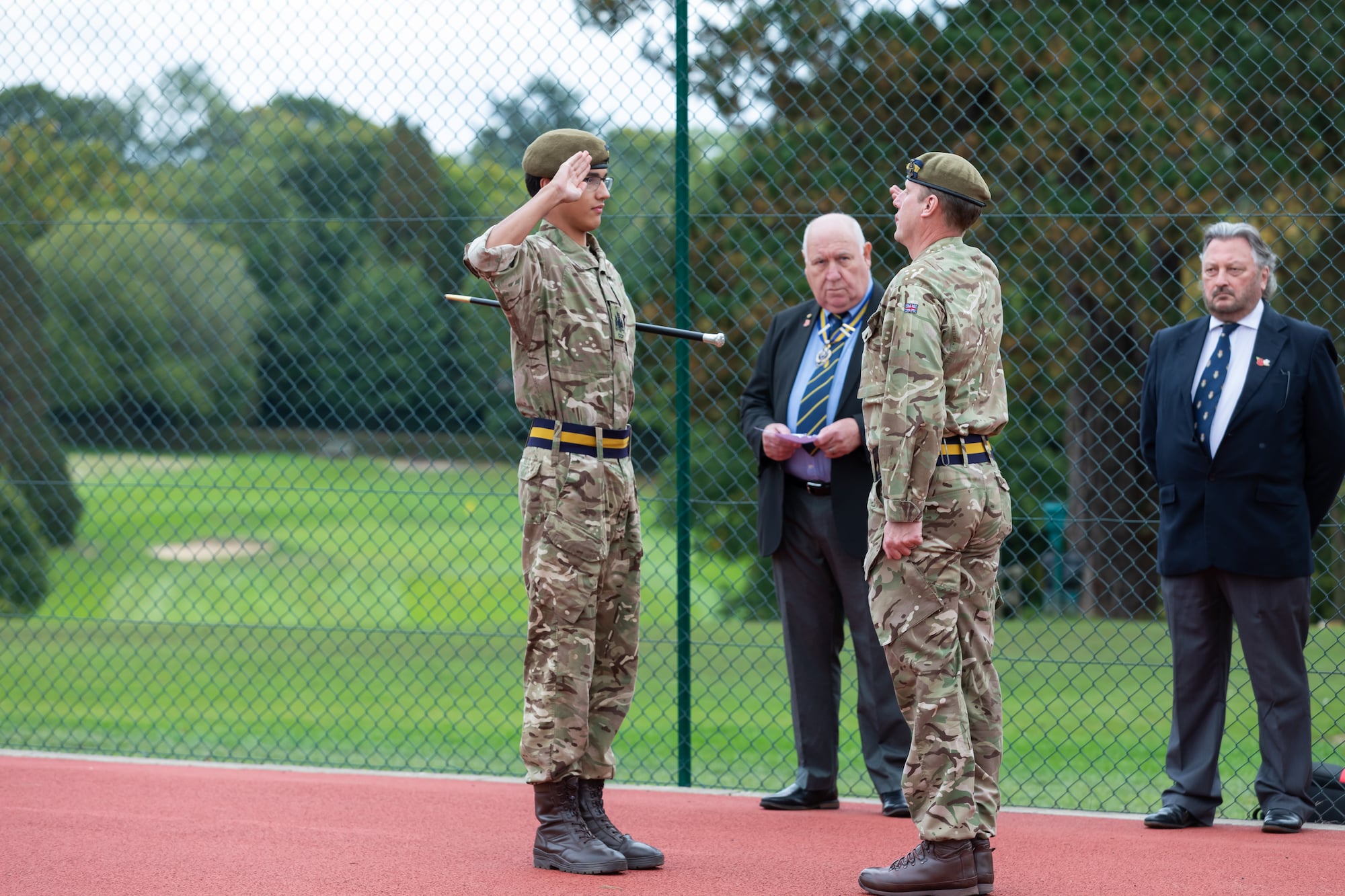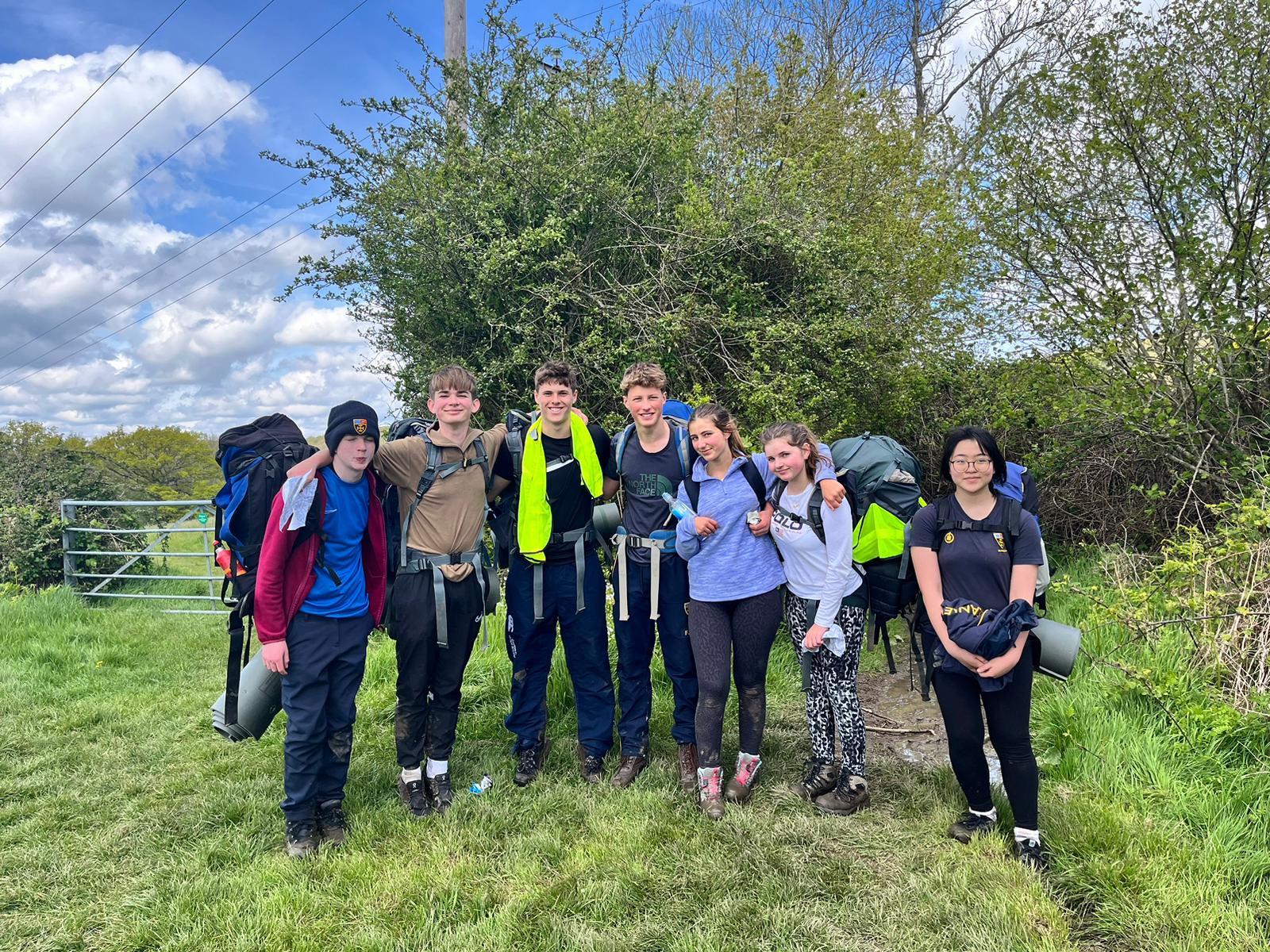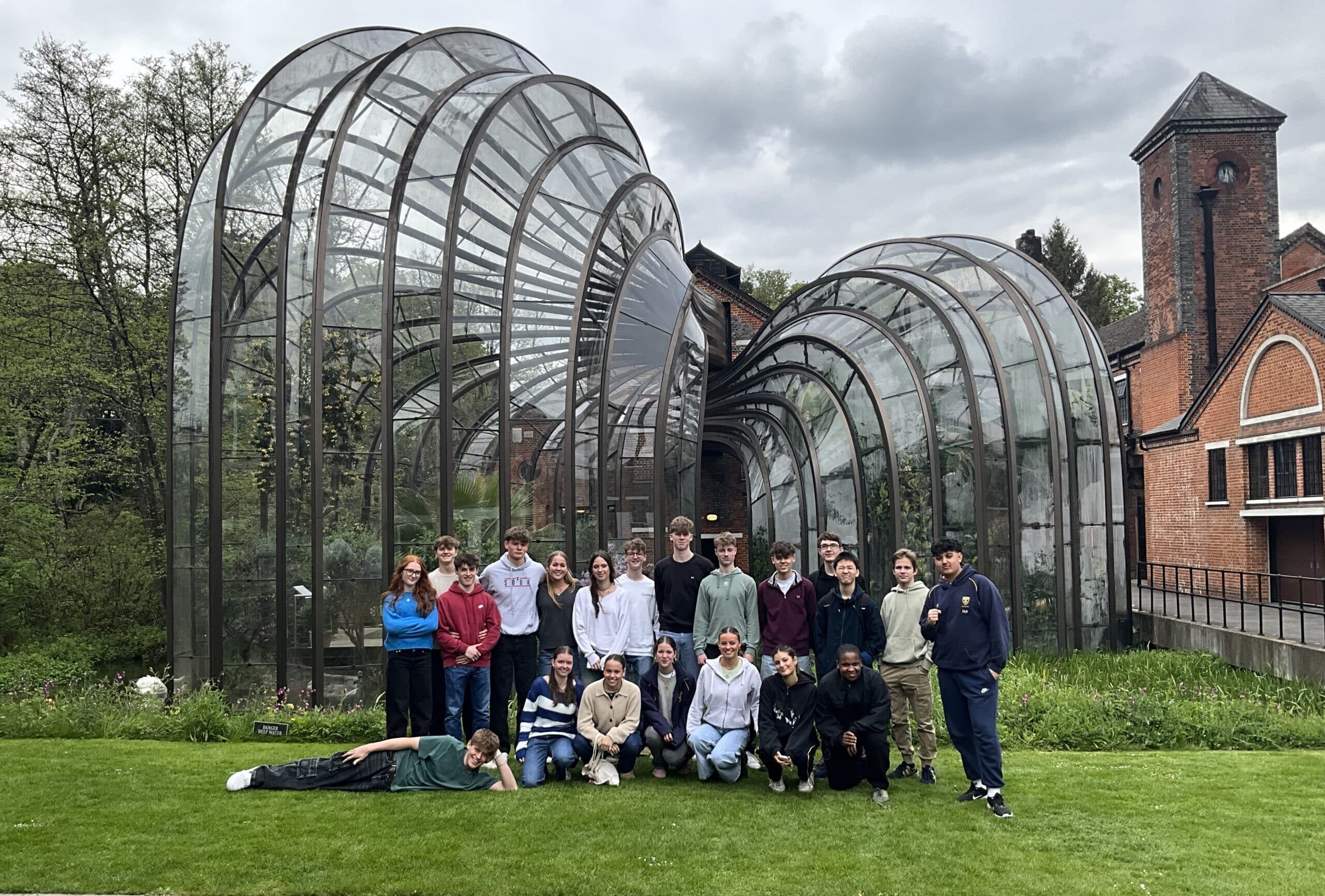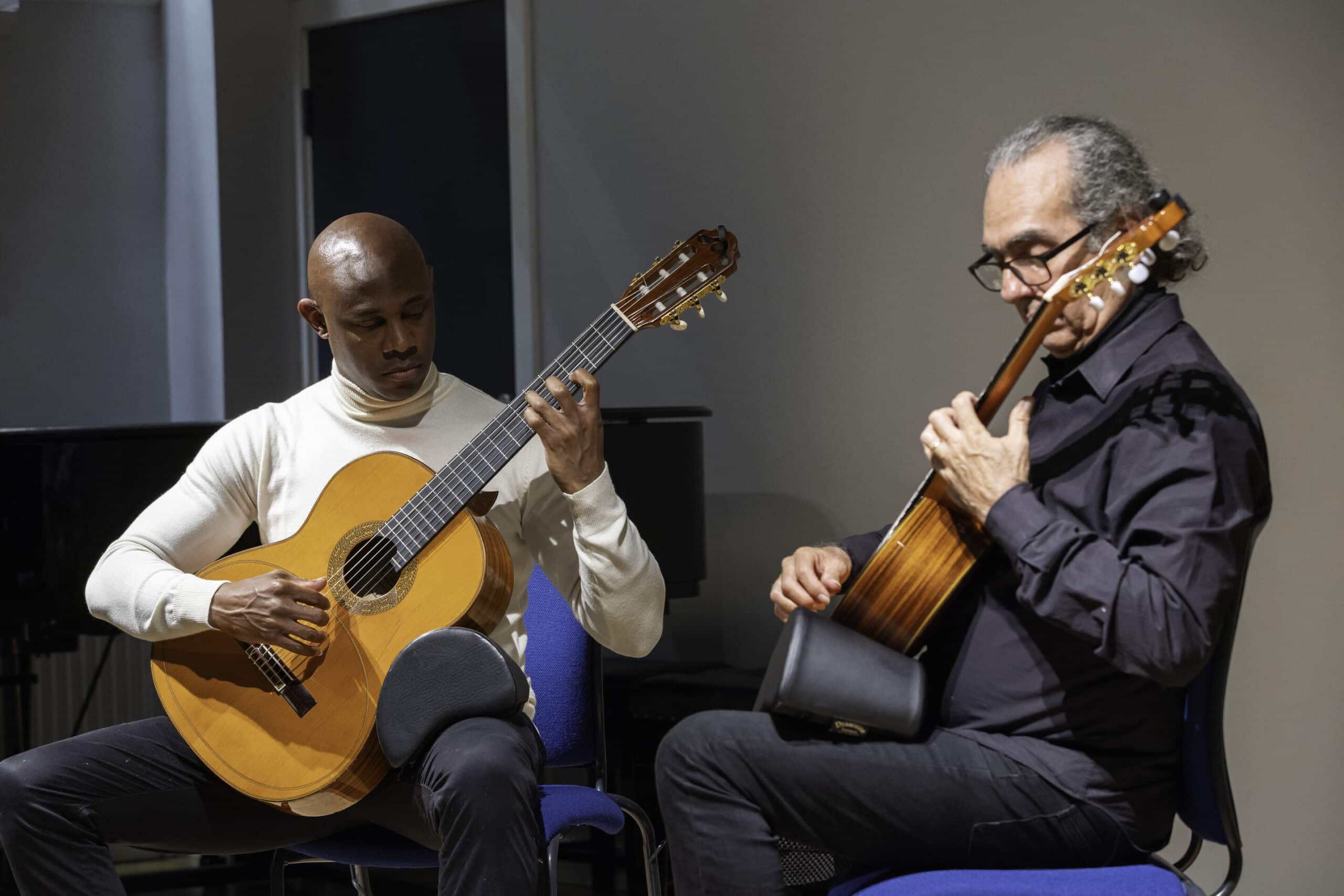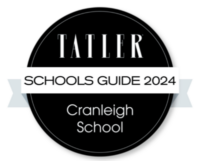A s well as being a programme with a cross-over feel (jazz even meeting Schumann in one number) the Concert Series event on Wednesday 22nd February was one of those wonderful Cranleigh School evenings where pupil and Common Room were on equal footing. Tom Hollister, one of the most multi-talented musicians ever to join the School, took centre-stage (side-stage for pedants) in both halves of this concert by the Sebastian Weiss Jazz Trio.
s well as being a programme with a cross-over feel (jazz even meeting Schumann in one number) the Concert Series event on Wednesday 22nd February was one of those wonderful Cranleigh School evenings where pupil and Common Room were on equal footing. Tom Hollister, one of the most multi-talented musicians ever to join the School, took centre-stage (side-stage for pedants) in both halves of this concert by the Sebastian Weiss Jazz Trio.
In the first half Tom (drums) joined pianist Seb Weiss and bassist Dave Manington in the Suite for Flute and Jazz Piano Trio by Claude Bolling, in which the soloist was Head of Woodwind, Ruth Miller. I have loved this piece for thirty years and the chance to hear it live made this a special evening. As on the early recordings by Rampal and Duran, Ruth brought a classical poise to her playing that complemented and contrasted the composed jazz elements. Seb Weiss’s pedigree of playing in New York’s famous jazz clubs meant that the spirit of improvisation was kept alive (notably in the ‘Irlandaise’ movement), even though this piece is all written down by the composer. The audience took great delight in the music-making and seemed to relish the chance to applaud each of the suite’s seven movements. Tom’s drumming was nifty, cool and insistent as the music demanded with even, in the ‘Javanaise’, a hint of Ravel’s ‘Bolero’ along with the obvious homage to Brubeck’s ‘Take Five’. Brubeck famously studied with Darius Milhaud and this crossover evening led me to ponder another influence on the rhythms of this movement: the ‘Pantoum’ from Ravel’s Piano Trio, no stranger to jazz himself. In the ‘Versatile’ Tom’s cymbal work was especially effective in support of the bass flute, a change that adds to the challenge of this piece for the flautist.
Ruth Miller gave us the ideal blend of virtuosity (the moto perpetuo for piano in the last movement is astonishing enough, but a flute player also has to breathe) and beauty of tone, whether singing high or low, as in the lovely opening to ‘Sentimentale’, a word which, pace the programme notes, does not have the implied negative of ‘sentimental’ in English. This was music to please, not music of cheese. I do hope that Ruth and the trio might in the future give us Bolling’s ‘California Suite’ (adapted from his music to the film): the combination of flute and trio seems to work so much better than the follow-up pieces that Bolling composed for violin, ’cello, trumpet, guitar, and even for chamber orchestra. There is also a second flute suite which I have yet to hear.
After the interval Seb Weiss explained that the trio were presenting different aspects of jazz to the packed audience in the Clive Stevens Recital Hall and they began with a piece based on a song by Beyoncé which even the younger listeners failed to recognise through the jazz disguise. In these pieces the bassist Dave Manington really came into his own, enjoying the freedom that Bolling’s score did not allow and giving us a range of pizzicato notes over several octaves and jamming with visible enjoyment with the trio’s regular drummer, Jon Scott. The second piece was ‘Suicide Is Painless’ from the film ‘M*A*S*H’, followed by a very popular jazz standard, Jerome Kern’s ‘All the Things You Are’ in which the angel glow of the irresistible melody occasionally peeped through the elaboration and twists. A special delight was the Haydnesque surprise mid-air ending.
Sebastian Weiss’s classical training was also evident in the next number, based on Schumann’s ‘Die Rose, Die Lilie…’ from ‘Dichterliebe’. This reminded me not only of the recordings of Uri Caine but also of last year’s Cranleigh Concert Series in which Seb was part of the ‘Immo Schröder Kollectiv’. The jazz version really captured the wit and spirit of the original Lied. Seb then introduced two of his own jazz compositions, ‘G minor’ and the haunting ‘Waves’, which was the cue for Tom Hollister to return, this time on marimba, thus making up a quartet. His obvious enjoyment in making music with these three professionals was a joy to witness and one felt that here was a young man already on the verge of a professional performing career himself. Tom starred also in the whirlwind final number, ‘The Spinner’ by Chick Corea: the tricky rhythm of the main theme was articulated with total confidence and panache.
We can look forward to the day when Tom returns as a professional to these concerts; for now Cranleigh music will feel a little strange without him.
PJL
Back to all news